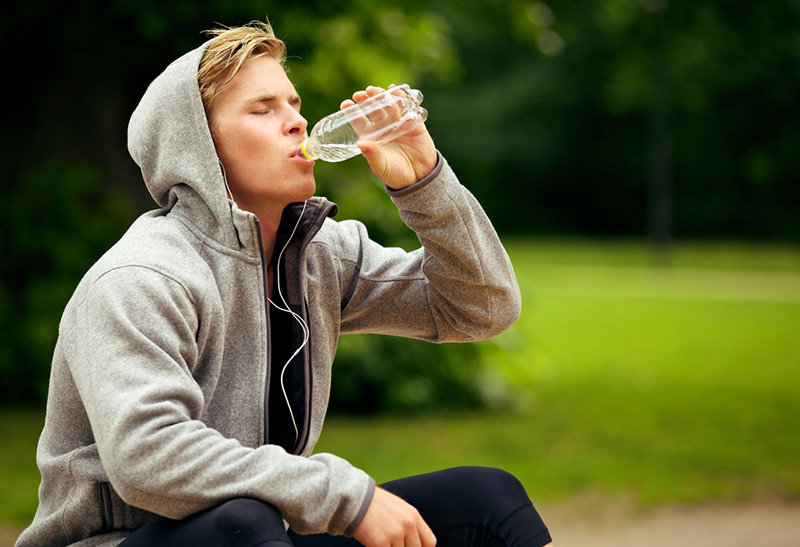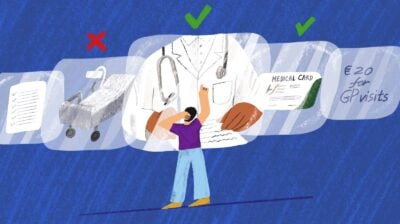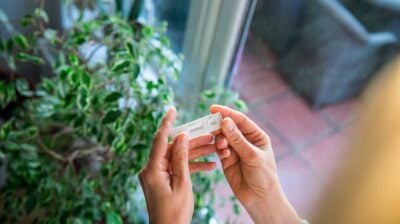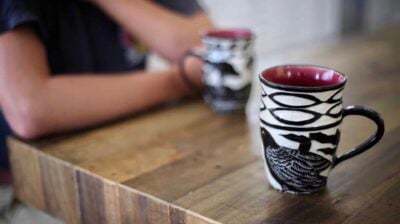Am I drinking enough water?
Tips for staying hydrated your body will thank you for

Many of us ignore how thirsty we get throughout the day, or never really think about it. Others might take in massive quantities of liquid all at once, but drink nothing at other times. Maybe we do make an effort to stay hydrated, but our fluid intake consists of lots of fizzy drinks and coffee. None of these routines are healthy enough to give our body the hydration it needs.
Keeping well hydrated is very important. What, and how much, we drink significantly affects our body and mind.
Why is hydration important?
Our brains are made up of 80% water. When we do not drink enough fluid, we can lose concentration and our memory will suffer. We lose energy from being dehydrated. Without enough fluid, we start to drag as the day goes on. A lack of water can cause swelling. Strangely enough, if we don’t hydrate properly, our bodies can swell up, trying to cling onto what little water it has. So our legs and ankles can start to feel swollen and uncomfortable.
Dehydration can lead to nausea and stomach pains. If you suffer with stomach troubles, it’s worth making sure that you are well hydrated on a regular basis. Drinking water keeps your heart healthy. Adequate fluid intake is needed to keep our hearts beating properly.
Water lubricates joints and muscles. Water in our bodies acts like oil on a door, so if we don’t drink enough fluids, our joints can get achy. In Ireland, we should drink about 1.2 litres (six to eight glasses) of fluid every day to prevent dehydration. You need more in hotter climates.
How to hydrate yourself
Pure water is best
Some people are concerned about fluoride in tap water, but the issue is still being debated amongst scientists. If you are still worried about fluoride, you can buy spring water in most shops and drink that instead.
Enjoy herbal teas
There are lots of different types of herbal teas out there. Some even have medicinal properties, such as peppermint for stomach aches and camomile for insomnia.
Eat fruit
Choose water based foods if you find it hard to keep hydrated. Foods such as watermelon, cucumber, tomato and soups low in sodium all contain a large amount of fluid, so work well to keep you hydrated.
Drink milk
Milk contains a lot of vitamins and minerals, particularly calcium. However it contains a form of sugar called lactose, so some dentists recommend keeping milk drinking to meals.
Drink more in the sun
Make sure you are well hydrated when exercising or out in the heat. If you’re working up a sweat, you will need to increase your fluid intake.
Listen to your body
Be careful if you are ill. You may need to drink more at times of sickness. Consult your doctor for advice on this. Use your urine as a guide. If your urine is very dark and you hardly ever need to pee, that usually means you are dehydrated. If your urine is very clear and light coloured, and you are urinating regularly, you are well hydrated.
Take it slow
Pace yourself. Try not to gulp down a pint of water in one minute and then not drink again for hours. It’s much better to have small amounts of fluid on a regular basis, as large amounts of fluid all at once can be difficult for your body to process.
Keep on drinking
Continue to hydrate yourself in cold weather. You may not feel as thirsty, but you still need to drink.
Drinks that don’t rehydrate
Fizzy drinks
These are okay on occasion, but they really shouldn’t be a regular part of your fluid intake. Sure, they will ease your thirst a bit, but they’ll do damage to your teeth and overall health at the same time. Plus, they do not contain any nutrition whatsoever.
Juices
These are okay sometimes, but they also should be consumed in moderation, as juices tend to contain an excess of sugar. On the plus side, juices do contain some vitamins.
Large amounts of coffee and tea
Coffee in particular has tons of caffeine. Caffeine seems to offer benefits in small doses (i.e. one or two cups per day), but large amounts of caffeine can mess with everything from your sleeping to your stomach. Tea contains less caffeine than coffee, but it still contains some. Caffeine is a diuretic, meaning it causes a person to urinate (pee) more. It’s not clear whether this causes dehydration or not, but to be safe, keep your intake moderate.
Alcohol
It’s a dehydrator. Think about how thirsty you feel if you’ve been out on a night of drinking. If you drink a lot of alcohol regularly, you’re almost guaranteed to be dehydrated. So consider drinking less alcohol, and be sure to drink plenty of water in between, and after, alcoholic drinks.






